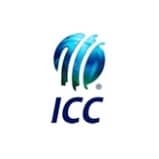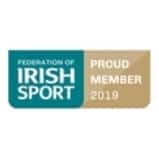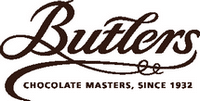As Cricket Ireland launches the inaugural RSA Cricket Ireland Awards, including one named in honour of former Sunday Independent editor Aengus Fanning, his son Dion Fanning recalls a childhood filled with the sport, and later trips to Lord’s.
I COULD say my father introduced me to cricket but it would be like saying he introduced me to the air that we breathe. There was no moment when my brothers and I were instructed in the intricacies of the game or when he sat down with us and explained his devotion so we would understand. It was assumed we understood.
He was introduced to cricket by his sister’s husband, Paddy McDonnell. Paddy Mac spent a lot of time listening to the radio, and the radio was tuned to the BBC. His curiosity did the rest and my father and Paddy Mac began to talk about cricket which wasn’t a natural topic of conversation for Kerrymen.
At my father’s funeral in January, somebody told me how Aengus had press-ganged him into cricket games organised in St Brendan’s Park in the Fifties. Tralee was a nationalist town and a GAA town and this was during the ban. Aengus played Gaelic football for Austin Stacks but, in the summer months, the roundabout in the Park became the square at Lord’s, for my father at least. The others may not have been harbouring the same illusions.
He was sustained by the illusions of the romantic, and his love of cricket was a romantic love, driven by the words of great broadcasters like John Arlott and the writing of men like RC Robertson-Glasgow, who would kill himself during a snowstorm in 1965.
In Tralee in the Fifties, these words were the promise of escape. In later years, he began to correspond with EW ‘Jim’ Swanton, and a friendship developed, despite it being said once of Swanton, “Jim isn’t a snob; he’s perfectly happy to travel in the same car as his chauffeur”.
My father’s devotion to the elegant batsmen began at an early age. Ted Dexter , Tom Graveney and Denis Compton ; Gordon Greenidge ahead of the rest of the great West Indian team, David Gower ahead of Botham and VVS Laxman, maybe even ahead of Tendulkar.
When Gower was left out of the tour of India in 1992, he wrote to Gower in sympathy. He wrote to Dexter too, who was then chairman of selectors, saying Dexter was siding with the roundheads — Gooch and Micky Stewart — against the cavaliers. Dexter, as Aengus pointed out, was “always a cavalier”.
Cricket brought us all great benefits. I remember the BBC coming to our house in the Seventies so we could watch the highlights of an Ashes series, while the battering ram Sky needed to get inside our home was the 1992 Cricket World Cup.
He had watched plenty of cricket when he lived in London in the Sixties but in 1991, we began our annual family trips. That year at Lord’s, Robin Smith scored 148 not out against the West Indies and we spent much of the rest of the trip sitting watching the rain from the lower tier of the Compton Stand with my father optimistically seeing a break in the clouds that never came.
He was in Manchester in 1993 with my brother Stephen when Shane Warne bowled the ball of the century to dismiss Mike Gatting.
In 1994, we went to the Oval Test. On the Saturday, his sons dragged him from the ground to watch Liverpool play Crystal Palace at Selhurst Park. Liverpool won 6-1 but Devon Malcolm was taking 9-57 up the road in Kennington. Aengus forgave us but, for some reason, reserved a special anger for Ray Wilkins, who had spent the afternoon lobbing hopeless balls towards the lunging Crystal Palace forwards, for what he had missed at the Oval.
In the Nineties, he formed the Sunday Independent cricket team. It was well timed. As Ireland became multi-cultural, Aengus saw the opportunity to improve the quality of the team. If he came across someone of Asian origin, in a restaurant or on the street, there might be some niceties of polite conversation, usually brief, before a pause as Aengus went silent, as he often went silent. Then he would ask, “Do you play cricket?”
He would then arrive, always late, for the games, driving a carload of the ringers he had acquired. Aengus was proud of his bowling, which was better than some appreciated. His fielding was wayward, as calls on his mobile always took precedence and he would drift towards the boundary in conversation, or often over it.
At Aengus’s funeral, one of his cricketing comrades, Namal, remembered how, long after the team had stopped playing, Aengus would help with job references.
Those players who had magic mattered most to him. Eoin Morgan’s rise delighted him and he had a loyalty to their talent which nothing could shift. He would, I know, have sided with Kevin Pietersen in his dispute with England.
He despised the demonisation of Pakistan but despaired of them too. My father wasn’t a sentimental man, emotions were too real and important for that, but he felt true sadness at the spot-fixing scandal and especially the downfall of the teenage Pakistani bowler Mohammad Amir.
There was always talk of heading to India or Australia to watch a series but you needed to take holidays for that. Now, as the nights close in, I wish those trips could have happened, just to counter the darkness of this first winter without him.
Even his illness, in my eyes, is framed by cricket. I remember shortly after he was diagnosed he said to me that everything can change in an instant, that his plans for the summer, his plans to watch Tendulkar at Lord’s, had now evaporated and were meaningless.
Instead he endured his treatment and remarked after that brutal summer that he hadn’t even followed the series.
Few things told me of his mental torment more than that. He took in cricket any way he could. He spent hours watching it on Ceefax (my brother Evan watched Lara’s 501 on teletext with him) or he would zip through the Sky channels to find a cricket match, demonstrating that he could master technology when he really had to. But now, between the pincer jaws of the cancer and the treatment, he could find no time for cricket.
A couple of weeks ago my brother emailed me the news that Cricket Ireland was naming its International Emerging Player of the Year award after Aengus. There have been many, many beautiful tributes to him since he died but nothing would have pleased him more than this honour.
He had organised the Sunday Independent Cricket Society International Player of the Year award and accompanying dinner more than 10 years ago with his great friend Charles Lysaght. Ed Joyce was the first winner. Eoin Morgan, Trent Johnston and Niall and Kevin O’Brien won it in later years.
To say he organised them would give the impression of order. For a long time, he appeared to do nothing, except secure a guest speaker.
And, for a time after that, he would still do nothing, even when others would wonder where the guest speaker would speak and to whom. Then a week beforehand, he would concentrate and out of the frenzy something magical would take place.
He told me once of driving the guest of honour Graham Thorpe and the great Jack Kyle back to their hotel after one cricket dinner. He stayed silent as these two magnificent sportsmen talked about the mysteries of their codes. He spoke of it later as if he had been allowed to hear the secrets of two renaissance painters, which, of course, he had.
Two months ago, I went to Lord’s for the first time since he died for the final day of the last test between England and South Africa.
I sat in the Mound Stand on my own and I cried. I remembered our last trip here on the day Andrew Flintoff took five wickets in the second Ashes test in 2009. We had sat in the same stand then and enjoyed a similar Monday with similar drama.
He loved the final day of a test at Lord’s, he loved the freedom and the sense that the place had been reclaimed from the dilettantes.
But on this Monday, everything else was different. There was less chaos, for a start. In 2009, there had been the inevitable misunderstanding with a steward when my father discovered he had left his ticket among the newspapers and his Wisden, which were spread out around his seat, rather than take it with him when he went to get a cup of tea.
We would have made a trip to the bookies’ tent to watch the odds fluctuate and bet on the next man out, which he always believed would be Ian Bell. There would be a pie and a rest at the Nursery end, again among the newspapers and Wisden.
When I went back in August there was silence, even on this final day with the excitement he’d have loved. My father saw Lord’s as an oasis of serenity and I could feel that still.
But I longed for the anarchy, the spirit and the joy which cricket with my father gave to us all, which my father gave to us all. And I missed him, like you’d miss the air that you breathe.
Originally published in Sunday Indepedent
Dion Fanning – Sunday Independent
No


















